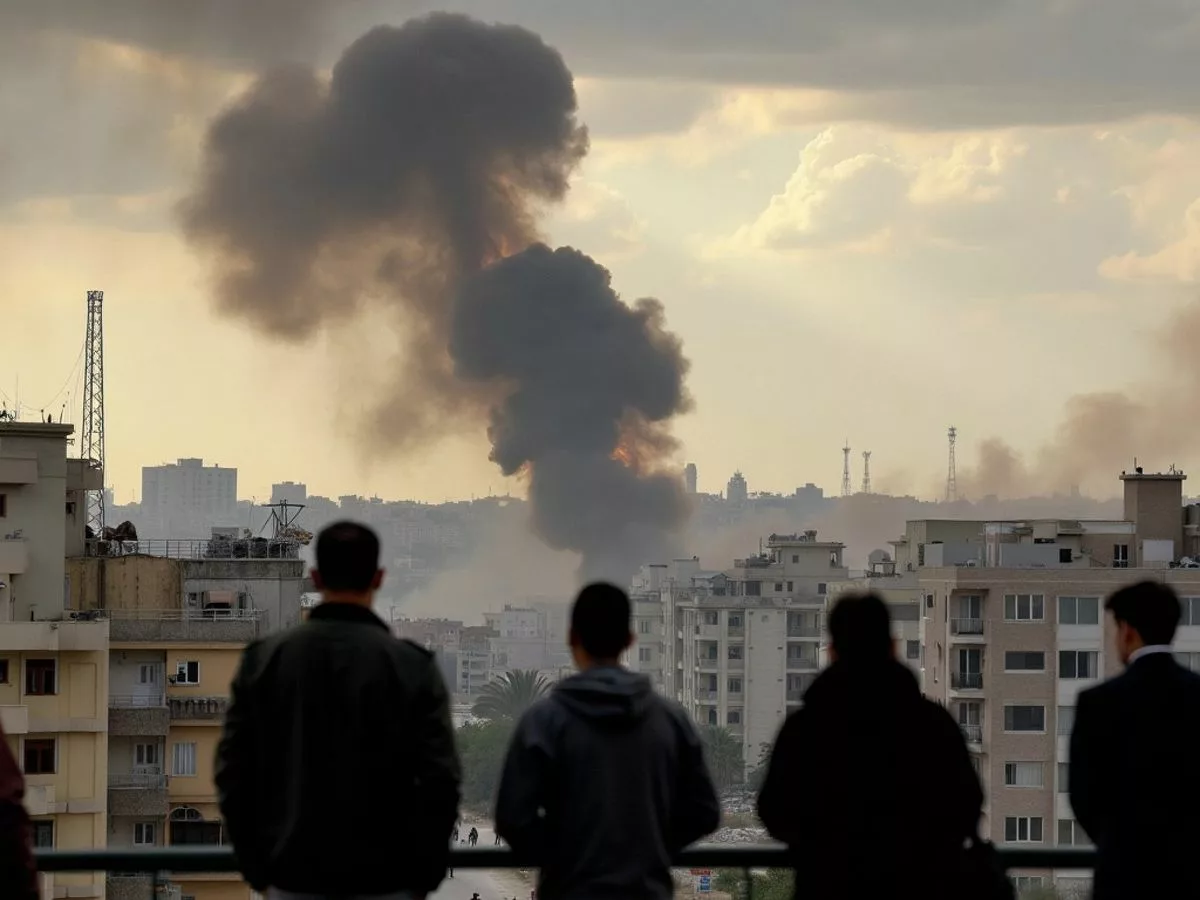
Israel has intensified its military operations in Gaza, resulting in significant casualties as Hamas pledges to sustain its fight. Recent airstrikes have reportedly killed at least 18 people, with fears of a broader regional conflict looming as tensions escalate along Israel’s northern border with Lebanon.
Key Takeaways
- Israeli airstrikes in Gaza have killed at least 18 people, including children.
- Hamas claims it has the resources to continue its resistance nearly a year into the conflict.
- Tensions are rising along the Israel-Lebanon border, with fears of a wider war.
- The conflict has resulted in over 41,000 deaths in Gaza since the war began.
Recent Developments
On Monday, Gaza medics reported that Israeli airstrikes targeted several homes, leading to the deaths of at least 18 individuals. Among the casualties were members of the Al Qassas family, who were struck while sleeping in their home in the Nuseirat refugee camp. Survivors described the devastation, with one family member stating, "My house was hit while we were sleeping without any prior warning. There are many martyrs, among them the sons of my family and my little grandsons."
In addition to the Nuseirat strikes, six Palestinians were killed in an overnight airstrike on a house in Gaza City’s Zeitun neighborhood, a frequent target of Israeli military operations. Another airstrike in Rafah resulted in two additional fatalities.
The Broader Conflict
The ongoing conflict, which escalated following Hamas’s attack on October 7, has resulted in the deaths of over 41,226 people in Gaza, according to the Hamas-run health ministry. The war has also seen the capture of 251 hostages, with 97 still held in Gaza, including 33 confirmed dead by the Israeli military.
Hamas officials, including senior member Osama Hamdan, have expressed confidence in their ability to continue the fight. Hamdan stated, "The resistance has a high ability to continue," emphasizing the recruitment of new generations into their cause.
Regional Tensions
The situation is further complicated by rising tensions along Israel’s northern border with Lebanon, where Hezbollah has engaged in near-daily cross-border fire with Israeli forces. Israeli Defense Minister Yoav Gallant warned that the chances for a ceasefire with Hezbollah are diminishing, raising concerns about a potential wider conflict.
Hezbollah’s deputy chief, Naim Qassem, stated that while the group does not intend to escalate the situation, they are prepared for significant losses if Israel initiates a war.
International Reactions
In response to the escalating violence, Amos Hochstein, the special envoy of U.S. President Joe Biden, arrived in Israel to help mediate tensions between Israel and Hezbollah. The international community is closely monitoring the situation, with fears that the conflict could draw in more regional players.
Additionally, Yemen’s Houthi rebels have claimed responsibility for a missile attack on central Israel, further complicating the regional dynamics. Israeli Prime Minister Benjamin Netanyahu vowed retaliation, stating, "They should have known by now that we charge a heavy price for any attempt to harm us."
Conclusion
As the conflict continues to escalate, the humanitarian situation in Gaza remains dire, with thousands of lives lost and many more affected. The international community watches closely, hoping for a resolution to the ongoing violence and a return to peace in the region.






